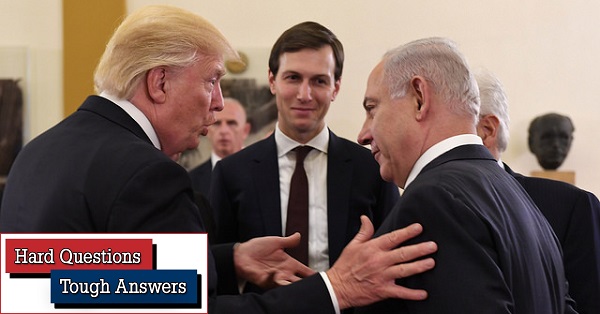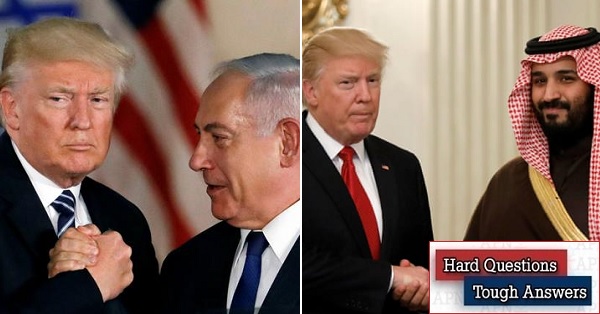Yossi Alpher is an independent security analyst. He is the former director of the Jaffee Center for Strategic Studies at Tel Aviv University, a former senior official with the Mossad, and a former IDF intelligence officer. Views and positions expressed here are those of the writer, and do not necessarily represent APN's views and policy positions.
Q. Most mainstream political parties are playing down the Palestinian issue in these elections. Yet everywhere we look, Palestinian-related crises threaten to break out and provoke violence or extreme situations. What is the dynamic here?
A. In Jerusalem, in Gaza and in the West Bank, Palestinians and relevant Arab states
(Egypt, Jordan, Qatar) recognize that at election time the Netanyahu government does not want to risk a crisis that
could cost Israeli lives. Nor, they assess, does Netanyahu wish to distract the electorate in the direction of
Palestinian issues that he has no intention of dealing with. The upshot is an intricately choreographed and totally
cynical dynamic in which Palestinian provocations in the Gaza Strip and Jerusalem are answered by Netanyahu with
belligerent but empty threats accompanied by anxious efforts to appease.
The Israeli threats are belligerent for the benefit of Netanyahu’s Jewish voters, whom he seeks to convince that
only he can deliver security. The threats are largely empty in Arab eyes insofar as it is clear the last thing
Netanyahu wants or needs is a genuine violent conflagration on election eve. Israeli commentators are taking to
call this the Palestinian version of Israel’s “campaign between wars” (Mabam is the Hebrew acronym).
Israel has in recent years successfully waged a campaign between wars against Iran and its proxies on the Syria
front, where the IDF is hitting back at Iran’s military buildup but without risking war. On the Gaza front, Hamas’s
Friday fence demonstrators, sporadic rocket fire from the Strip and renewed balloon attacks (now bearing explosives
instead of incendiary devices), coupled with Palestinian demonstrations on Jerusalem’s Temple Mount, are doing just
enough to crank up the tension and extract concessions, but without risking all-out confrontation.
Q. Where do Egypt, Qatar and Jordan enter the picture?
A. In recent days, a high-level delegation of Egyptian Intelligence officers has
shuttled back and forth between Gaza, IDF Headquarters in Tel Aviv, and Cairo. Their goal is to put in place a
structure of Israeli and Hamas concessions that will last at least through Israel’s April 9 elections. For example,
Israel will expand Gaza’s Mediterranean fishing zone and supply more electricity. Hamas will restrain Friday
demonstrations at the fence and try to prevent Islamic Jihad, which answers directly to Iran, from firing its
rockets at Israel.
In parallel, Egypt has released a few Hamas prisoners that it held in detention on charges of aiding the Egyptian
Muslim Brotherhood. And it will keep its Rafah border with the Strip open for a while, permitting Palestinians to
trade and travel via Cairo. (After Israel’s elections the Egyptians can be counted on to close the crossing for
security reasons: they justifiably fear Hamas coordination with Egyptian Islamists.)
Lastly Qatar, in direct logistic coordination with Israel, is enlarging its monthly cash dollar subsidy to Hamas in
Gaza from $15 million to $20 million. The Qatari cash, variously labeled as “salaries”, “welfare” and
“infrastructure finance”, is in fact nothing but a short-term bribe. True, Qatar has also pledged, in coordination
with the United Nations and Israel, to channel larger sums to genuine vital infrastructure projects in the Strip
like sewage recycling. But here progress is painfully slow and seems disconnected from the immediate security
situation and Israel’s elections.
As for Jordan, it appears to be setting aside its concern lest the Trump “deal of the century” proposals for
Israeli-Palestinian peace (see last week’s Q & A) somehow seek to award Saudi Arabia a piece of Jordan’s role
as guardian of Islamic interests on the Temple Mount. Accordingly, Amman is working with the Netanyahu government
to restore and maintain calm on the Mount, where a flareup over access to a secondary mosque structure has thus far
been contained.
Q. So in Gaza and Jerusalem, matters are under control . . .
A. Just barely. But March 30 is approaching. That date will mark exactly a year of Gaza fence protests that began over the opening of the US embassy in Jerusalem--violent demonstrations in which more than two hundred Palestinians have been killed by IDF fire and thousands wounded. With Israeli elections scheduled barely ten days later on April 9, March 30 will provide the ultimate test as to whether this patchwork of bribery, inducements and threats works. After all, as the relevant parties know perfectly well, it’s not as if behind this effort there lies a genuine peace process or even a viable economic prosperity plan for the Palestinians of Gaza.
Q. You mentioned the West Bank, too, meaning presumably the PLO and the Palestinian Authority, both headed by Mahmoud Abbas . . .
A. Abbas appears to have a different agenda than that of Hamas in Gaza. For one, he is
consistently denying PA funds to the Gaza Strip, thereby contributing to unrest and impoverishment there, in order
to punish Hamas. Yet at the declarative level he still purports to negotiate a two-state solution in which the West
Bank and Gaza Strip are part (along with East Jerusalem) of a single Palestinian state. Indeed, these days he is
meeting in Ramallah with a variety of two-state-oriented Israelis to reassure them of his intentions--apparently in
an attempt to strengthen the Israeli peace camp in Israel’s elections.
Secondly, Abbas has just appointed a new PA prime minister, Muhammad a-Shtayyeh, a veteran Fatah apparatchik whose
primary background is in economic affairs and who has never distinguished himself in the strategic sphere. Notably,
Shtayyeh’s two immediate successors over recent years, Rami al-Hamdallah and Salam Fayyad, were both non-Fateh
independents who ran technocrat governments.
Abbas’s intention in appointing Shtayyeh is not entirely clear. He seems to be shoring up Fateh control over the
movement’s rank-and-file in anticipation of new challenges. But from what direction? By Hamas, against the PA? By
PA security forces, who in view of the peace process stalemate are feared to be increasingly likely to rebel
against close cooperation with Israel in dealing with West Bank-based threats? Or against Abbas’s own rule as he
ages and appears feebler and possibly less in control? Time will definitely tell.
Q. Then there is the Israeli domestic arena, where two electoral lists of Arab citizens to which the polls guarantee a total of around 10-12 mandates in the coming elections could play a role in the post-election coalition game . . .
A. Note that one of those lists comprises Islamist and secular extremists who would
never join any Israeli government. Indeed, the list is in danger of being ruled ineligible to run in the elections
by the Israel High Court of Justice. The other, headed by Ayman Odeh and Ahmed Tibi, is considered more moderate
even though it is by no means a supporter of Zionism or a Jewish state.
Here we encounter some fascinating statements of recent days by mainstream Jews. Most prominently, Yediot Aharonot
columnist Nachum Barnea, a very senior commentator and an Israel Prize winner, wrote on Monday that “If there ever
emerges a center-left government in Israel there is no reason why Ayman Odeh and Ahmed Tibi should not serve as
ministers. They are the flesh and blood of Israeli society.”
Members of Knesset from Arab parties have never served in an Israeli government. The Blue and White party
leadership, not to mention Likud’s Netanyahu, have vowed not to invite them into whatever coalition might emerge
from these elections. That’s why Barnea’s statement is so startling.
Barnea was preceded a few days earlier by a tweet from a popular actress and entertainer, Rotem Sela, insisting
(“this is a country for all its citizens”) on equal national rights for Arab Israelis. Israeli actress Gal Gadot
(“Wonder Woman”) chimed in to support Sela. All this would have been far less sensational had not PM Netanyahu
chosen to respond directly to Sela in a Facebook message Sunday morning: “an important correction: Israel is not a
country of all its citizens. According to the Nation-State Law that we passed, Israel is the nation-state of the
Jewish nation . . . alone.”
Here, in a nutshell, are two diametrically opposed concepts of the status of Israel’s Arab citizens, set against
the backdrop of the upcoming elections. Indeed, at a broader national-strategic level, these two concepts define
Israel’s future: an ultra-nationalist right-religious state, increasingly apartheid and undemocratic, or a liberal
democracy that is determined, despite hostile surroundings and daunting odds, to live at peace with itself and its
neighbors.
Q. Apropos that future, which candidate for prime minister, Netanyahu or Gantz, do the West Bank and Gaza Palestinians prefer to see in power after April 9? Not that they (unlike Israeli Arab citizens) have a vote . . .
A. I asked prominent Palestinian political scientist and pollster Khalil Shikaki, who
has his finger on the PA/PLO pulse in Ramallah, how he would answer this question. His response is intriguing
(reproduced here with permission): “I have no doubt that a victory for the center would be preferable to a victory
for the right. But it is Trump, not Netanyahu, that Abbas is more concerned about right now. A victory for the
center coupled with a Trump plan, while less threatening than the alternative, remains very problematic for
Abbas.”
Note that, in sharp contrast to the Israeli electoral scene where the entire Palestinian issue has been pushed to
the back burner, Shikaki attests to a reality in which among West Bank Palestinians the forthcoming Trump peace
plan is a main preoccupation. Yet this is apparently not the case in the Gaza Strip, where Hamas is in any case not
interested in a US-sponsored two-state political solution.
A number of Hamas sources cited by the generally reliable Al-Monitor claim that Hamas favors Netanyahu. They credit
him with allowing the Qatari monthly cash deliveries. They recall that it was he who negotiated the 2011 prisoner
swap for Gilad Shalit (which released current Hamas leader Yahya Sinwar from Israeli jail) and expect him to be
more flexible in future trades. They believe he wants to avoid another extended war against Gaza.
Perhaps most important for Hamas leaders, they reportedly believe a Gantz/centrist victory in Israeli elections
could usher in a successful peace process between Israel and the West Bank-based PLO. This is considered
undesirable for Hamas for three reasons. First, it would grant Arab-world legitimization to Israel’s claim to most
of historic Palestine--a concession vehemently opposed by Hamas and other Islamists. Second, once that happens,
Hamas would expect Israel to adopt a far more aggressive approach toward Gaza. And third, a two-state solution
would further legitimize and aggrandize the rule of Fateh and the PLO, Hamas’s rivals for Palestinian
leadership.
Who said only Israelis are hopelessly divided?


